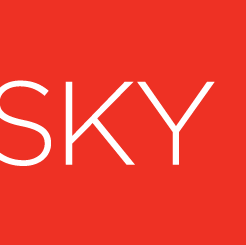Profitable businesses have quality employees as a foundation. That means your job as an HR professional is vital to the organization. It’s not easy to recruit great employees. Without a winning recruitment strategy, your job gets even harder.
The number one question our HR clients ask us is how they can recruit the right candidates to match the skills and talents their organizations need. They also want to know how to do it on a tight budget in a changing digital environment.
It’s not simply that things have changed that’s problematic though. It’s the rapid pace at which things have changed and continue to change.
Here are some smart tactics we believe are critical for success in an ever-changing digital recruiting market:
1. Be Mobile
Job search isn’t going mobile. It already is. Job seekers are using smartphones and tablets to conduct their searches on the go. These are the stats from Pew Research:
- Ninety-four percent of job seekers browse or conduct research on their smartphones
- Eighty-two percent of hourly job seekers are now searching for jobs from their phone
- Half of smartphone job seekers completed a job application on their phone
You get the picture. If your career site isn’t responsive, you’re missing out on a huge opportunity, and that doesn’t just apply to hourly job recruiting. Over half of young adults and 28 percent of all adults have used their smartphone to search for jobs.
Test your career site’s mobile application process. If it’s slow and cumbersome, applicants will abandon the process. Forty-seven percent of smartphone job seekers had trouble accessing some job-related content on their phone. You can’t put this off any longer. Find space in your budget for this now.
2. Make the Application Process Short and Sweet
Think about the user experience (UX). It should be simple, easy and quick to apply for jobs at your career site. If candidates are frustrated, they will leave. If the process is smooth, they’ll take the time to complete it.
Let people know upfront how long it will take to complete the application process. This is especially important for Millennials who are digitally savvy. Offer the ability to apply with a LinkedIn profile instead of uploading a resume. That way, it’s super easy for mobile applicants.
Most importantly, focus on getting the job seeker to apply, then do your vetting. Don’t bog applicants down with a laundry list of questions that take a long time to go through. You can do your vetting once you have a good pool of applicants.
3. Be Data-Driven
One of the reasons the recruiting industry has changed so rapidly is because of automation. You don’t have to be technologically savvy to know this is also one of the best things that could have ever happened to recruiting.
Because everything is automated, there’s data. With data, you don’t have to make guesses about where to put resources. You can use the metrics to uncover things like requisition aging, present-to-interview rates, interview-to-offer rates, offer rates and acceptance rates.
The data also allows for objectivity when screening and sourcing candidates. This should drive your decision-making.
Learn everything about the tools and applications you use to determine how to get the best metrics. Develop a close working relationship with your technology partners so they will understand your needs and show you how to maximize these tools.
Data can’t do it all, but it can make your job a lot easier.
4. Write Epic Job Postings
Click-to-apply rates have a lot to do with how a job post is written. If it’s too short, there’s not enough information to pique interest. If it’s too long, it lengthens the application process and let’s face it, attention spans are short, especially online.
Try to shoot for that sweet spot that provides relevant information without being too detailed. Throw in some passion and excitement. Don’t be afraid to let your personality show.
Never post one-size-fits-all job descriptions. If you put in a little time and effort with your job descriptions, you’ll reap greater click-to-apply-rates.
5. Don’t Ignore Social Recruiting
Two important things to remember about social media: Post regularly and consistently and engage with your followers. It provides a human element. It also a great way to brand your organization.
But that’s only part of it. Most companies aren’t fully utilizing social media for recruiting because posting and archiving is so time-consuming. Others aren’t so sure how to go about it.
Your ATS or careers page should be distributed across Facebook, Twitter and LinkedIn at a minimum. If you aren’t able to do this internally, you may want to look at a vendor that can do it for you.
6. Mind Your Employer Brand
Because we are a marketing and branding agency, this is where get a little passionate. Employer branding should always be top-of-mind. That means you have to think like a marketer.
The product you’re marketing is your company. Think about all of the features, advantages and benefits of your organization. This is why job applicants are attracted to your organization.
Those are your selling points. Talk about those things like a marketer talks about their product. These points should emanate from all communication, especially social media.
Make a list of the selling points so that everyone in your organization is on the same page. You can ask employees to make submissions via a contest with prizes. A simple survey will work just as well.
The tactics you implement will determine whether or not you have a winning recruitment strategy. Automation, attention to your digital footprint and employer branding will go a long way in your quest.

